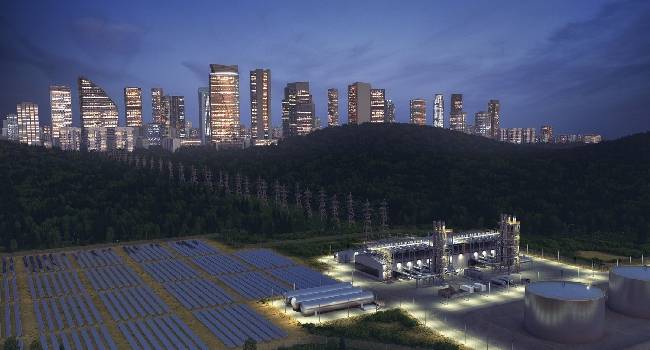Tech
Nigeria can hit 100% renewable energy by 2060, cut energy costs by 74%, reports says

A global technology group, Wärtsilä, released on Thursday released a new report tagged “Nigeria Leading Africa to Net Zero”, which provides a detailed and realistic roadmap showing how Nigeria should proceed to build a 100% renewable energy power system by 2060.
As Nigeria seeks to take the lead in climate action whilst meeting the nation’s growing energy needs and secure universal access to electricity for its population, the need to build a data-driven and cost-effective energy strategy becomes crucial. Using advanced energy system modelling techniques, Wärtsilä’s said it’s analysts have outlined the most cost-effective power system that can be built in Nigeria year after year to reach net zero by 2060.
According to Wärtsilä’s report, the optimal power system will consist of 1,200 GW of renewable energy capacity and require a total of 283 GW of energy storage and 34 GW of engine-based power plants for grid balancing purposes.
It said the research shows that investing in renewable energy and flexibility from gas engines and energy storage is the best way to reduce energy costs, increase energy access and improve grid reliability. With this strategy, the cost of electricity generation is predicted to drop by 74% by 2060 compared to 2022 levels, and carbon emissions will drop to zero.
READ ALSO:Nigerians spend N393.14bn on electricity in six months
“This in-depth energy modelling exercise also reveals the key role that Nigeria’s domestic gas will play to enable a smooth energy transition. Nigeria’s vast domestic gas reserves can be mobilised as an inexpensive bridging fuel, to power balancing engines in support of intermittent renewable energy generation, until gas engine power plants begin to be converted to run purely on green hydrogen starting in the early forties”, the report stated.
“If the power system expansion roadmap presented to the report is successfully implemented, by 2060 Nigeria’s power system will be fully decarbonised and able to meet the energy needs of our country’s rapidly growing population. The key components of our power system will be renewables, supported energy storage technologies, together with grid-balancing engines that have been converted to run on green hydrogen. As early as 2032, Nigeria can reach universal access to electricity, and the inefficient, expensive, and polluting diesel generators still widely used today will be ancient history.”, said Wale Yusuff, Managing Director of Wärtsilä in Nigeria.
He however, warned, that delivering on this ambitious plan will require enormous investments, estimated at $18.7 Billion until 2030 and $425 Billion until 2060. “Attracting that level of investment is possible, but not without significant policy reforms. Despite the many government efforts to implement an increasingly strong legal framework, project developers and sponsors must still navigate a very complex and uncertain system that adds excessive investment risk”.
The report also noted, that with its huge gas reserves and high renewable energy potential, Nigeria has all the natural resources necessary to lead the country to a successful energy transition. If the country can improve its power transmission infrastructure, develop a sound policy framework, and deploy a data-driven power expansion plan based on renewable energy and flexibility; it will take a giant step towards its goal of securing universal access to affordable, reliable and fully decarbonised electricity.
Join the conversation
Support Ripples Nigeria, hold up solutions journalism
Balanced, fearless journalism driven by data comes at huge financial costs.
As a media platform, we hold leadership accountable and will not trade the right to press freedom and free speech for a piece of cake.
If you like what we do, and are ready to uphold solutions journalism, kindly donate to the Ripples Nigeria cause.
Your support would help to ensure that citizens and institutions continue to have free access to credible and reliable information for societal development.






















